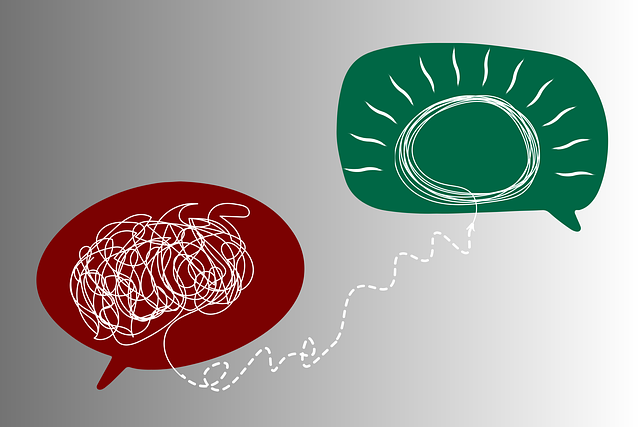Mental illness diagnosis faces challenges due to diverse symptoms, cultural differences, and subjective assessment tools. Golden Acceptance and Commitment Therapy (GACT) offers a revolutionary solution by promoting acceptance, mindfulness, and cultural sensitivity, building resilience in patients with distressing symptoms. Integrating crisis intervention guidance, journaling exercises, and healthcare provider cultural competency training enhances self-awareness, fosters long-term recovery, and ensures culturally sensitive care. Adopting GACT principles, along with evidence-based practices and community outreach, significantly improves diagnosis accuracy and patient outcomes, emphasizing a supportive culture for improved mental wellness.
Mental illness diagnosis accuracy is a critical aspect of patient care, yet it remains a challenging field. This article explores efforts to enhance diagnostic precision, focusing on strategies that have proven effective in clinical settings. We delve into the complexities of mental health assessment, highlighting the benefits of Acceptance and Commitment Therapy (ACT) as a game-changer in improving diagnosis. Additionally, we present golden rules for diagnosticians and emphasize the importance of evidence-based practices for more reliable outcomes, fostering a culture of support through patient-centered care approaches.
- Understanding the Challenges of Mental Illness Diagnosis
- The Role of Acceptance and Commitment Therapy (ACT) in Enhancing Accuracy
- Golden Rules for Diagnosticians: Improving Assessment Techniques
- Integrating Evidence-Based Practices for More Reliable Results
- Fostering a Culture of Support: Patient-Centered Care Approaches
Understanding the Challenges of Mental Illness Diagnosis

Mental illness diagnosis is a complex process fraught with challenges. The vast spectrum of symptoms and their interplay can make identification difficult, especially when individuals present with co-occurring disorders or unique cultural backgrounds. This complexity is further exacerbated by the subjective nature of many assessment tools, which may not fully capture an individual’s internal experience. As such, professionals often face a delicate balance between accurately diagnosing and understanding the nuances of each patient’s mental health journey.
Golden Acceptance and Commitment Therapy (GACT) offers a promising approach to navigating these challenges. By fostering acceptance and mindfulness, GACT helps individuals build resilience in the face of distressing symptoms. This therapy also incorporates cultural sensitivity principles, ensuring that assessment methods are adaptable and inclusive. Additionally, Crisis Intervention Guidance can be integrated into this framework, providing timely support during acute episodes while encouraging long-term recovery.
The Role of Acceptance and Commitment Therapy (ACT) in Enhancing Accuracy

Acceptance and Commitment Therapy (ACT) has emerged as a powerful tool in the pursuit of improving mental illness diagnosis accuracy. This therapeutic approach goes beyond traditional talk therapy by encouraging individuals to accept their emotions and thoughts without judgment, while also committing to actions aligned with personal values. ACT’s focus on mindfulness and psychological flexibility can significantly enhance the way healthcare providers assess and diagnose mental health conditions.
By integrating mental wellness journaling exercises into treatment plans, ACT promotes self-awareness and reflection. This practice allows individuals to track their experiences, identify patterns, and gain valuable insights that might otherwise remain unseen during a clinical encounter. Furthermore, Healthcare Provider Cultural Competency Training is essential in ensuring accurate diagnoses as it equips professionals with the knowledge and skills to navigate diverse cultural contexts. When mental health providers are trained to recognize and appreciate cultural differences, they can offer more nuanced guidance, improving both the accuracy of diagnoses and the overall quality of care.
Golden Rules for Diagnosticians: Improving Assessment Techniques

In the pursuit of enhancing mental illness diagnosis accuracy, a key focus area lies in refining assessment techniques. Diagnosticians often face complex challenges when assessing patients, especially given the multifaceted nature of mental health conditions. To address this, adopting certain Golden Rules can significantly improve diagnostic practices. One such powerful approach is Acceptance and Commitment Therapy (ACT), which has gained recognition for its effectiveness in treating a range of mental health issues. ACT encourages individuals to accept their experiences rather than fighting them, fostering resilience and enabling people to pursue valued goals despite the presence of difficult thoughts or emotions.
Beyond ACT, several strategies contribute to better diagnosis. Enhancing communication skills allows diagnosticians to create a safe and non-judgmental environment, encouraging patients to open up about their experiences. Integrating evidence-based practices, such as structured clinical interviews and standardized assessment tools, ensures consistent and accurate evaluation. Additionally, the implementation of Community Outreach Programs can provide early interventions and promote resilience building, thereby reducing the severity of mental health issues and depression prevention. These combined efforts strive to create a more comprehensive and effective mental healthcare system.
Integrating Evidence-Based Practices for More Reliable Results

Integrating evidence-based practices is a key strategy to enhance mental illness diagnosis accuracy and improve patient outcomes. One such practice that has garnered significant attention is Acceptance and Commitment Therapy (ACT), which encourages individuals to accept their emotions rather than trying to suppress them, fostering a more flexible mindset. This approach has shown promise in treating various conditions, including anxiety and depression. By combining ACT with other evidence-based methods, therapists can offer more comprehensive care.
For instance, Golden Acceptance and Commitment Therapy (GACT) combines the core principles of ACT with specific techniques tailored to address symptoms of anxiety and stress. It involves mindfulness exercises, cognitive reframing, and behavior activation strategies, enabling individuals to manage their symptoms effectively. Moreover, organizations are increasingly hosting Stress Management Workshops to promote positive thinking and resilience, which can complement these therapeutic approaches in fostering mental well-being and improving diagnosis reliability.
Fostering a Culture of Support: Patient-Centered Care Approaches

Fostering a culture of support is pivotal in enhancing mental illness diagnosis accuracy and patient outcomes. Patient-centered care approaches, like Acceptance and Commitment Therapy (ACT), offer a promising path forward. By focusing on cultivating acceptance, mindfulness, and committing to valued actions, ACT empowers individuals to manage their symptoms effectively. This therapy encourages patients to explore their unique experiences, fostering an environment where they feel heard, understood, and supported, which is essential for building trust and encouraging open communication with healthcare providers.
Integrating these patient-centered strategies into mental health care systems can lead to improved diagnosis accuracy and reduced stigma. Encouraging mental wellness journaling exercises and crisis intervention guidance further supports individuals in tracking their moods, identifying triggers, and developing coping mechanisms. Additionally, incorporating stress management techniques within these practices enables patients to proactively navigate challenging situations, fostering resilience and overall mental wellness.
Mental illness diagnosis accuracy is continually evolving, with significant advancements in understanding and treating conditions. By integrating evidence-based practices like Acceptance and Commitment Therapy (ACT), utilizing reliable assessment techniques, fostering supportive patient-centered care, and adhering to golden rules for diagnosticians, we can enhance diagnostic accuracy and improve patient outcomes. These efforts collectively contribute to a more nuanced and effective approach to mental health care, ensuring individuals receive the appropriate support they need.












